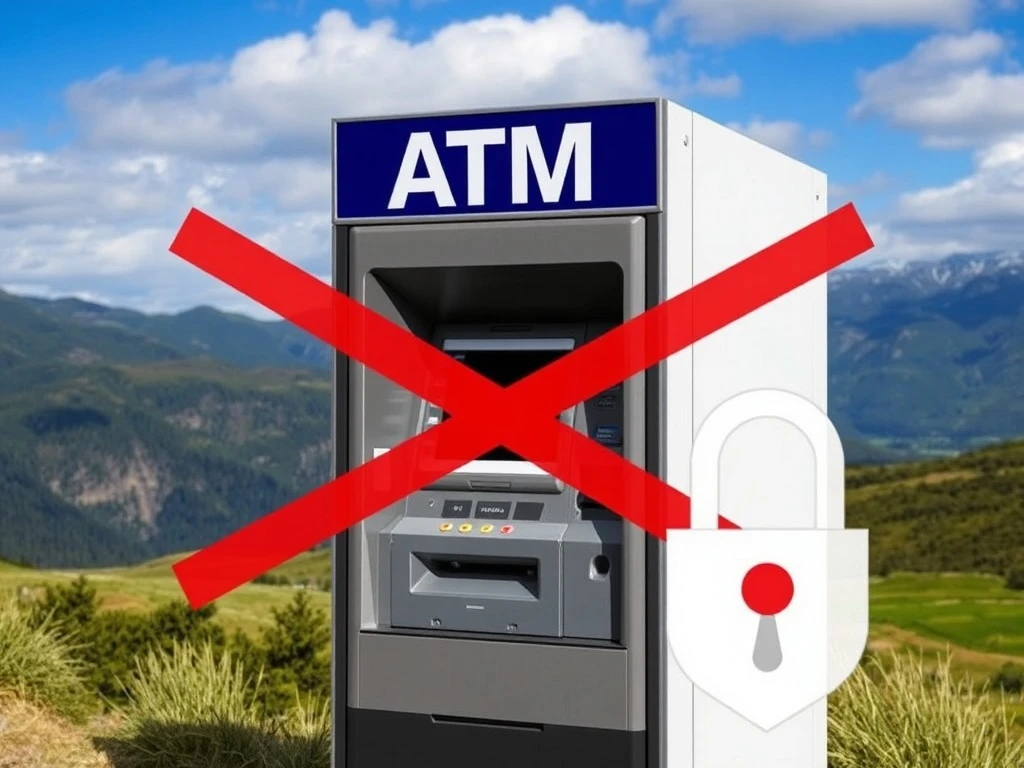SHOCKING: New Zealand Bans Crypto ATMs to Combat Financial Crime

Big news from down under! New Zealand has just announced a significant move impacting the crypto world: a nationwide ban on crypto ATMs. This isn’t just about removing machines; it’s a direct response to concerns about illicit financial activity. The government says this bold step, part of a broader Anti-Money Laundering (AML) push, aims squarely at disrupting criminal operations that rely on converting cash into crypto quickly and anonymously. If you’re interested in global cryptocurrency regulation or the intersection of crypto and financial crime, this development is crucial.
New Zealand’s Bold Crypto ATM Ban Explained
Associate Justice Minister Nicole McKee revealed the measures, highlighting them as key components in overhauling New Zealand’s AML/CFT (Countering the Financing of Terrorism) regime. The plan includes two major actions:
- A complete ban on crypto ATMs across the country.
- Introducing a $5,000 limit on international cash transfers.
Officials state these measures are designed to close loopholes exploited by criminals to move funds obtained through illegal activities. The focus is on preventing the easy conversion of cash into high-risk assets like cryptocurrencies.
Why Target Crypto ATMs? Addressing Money Laundering Concerns
According to a report from New Zealand’s Ministerial Advisory Group on Transnational, Serious and Organised Crime, criminals have increasingly used crypto ATMs to facilitate illicit transactions. These machines allow for rapid conversion of cash into crypto, which can then be sent overseas for purposes such as drug payments or fraud-related activities. The ban is seen as a direct way to make it harder for these groups to operate.
The government emphasized that this action targets criminal behavior without imposing undue burdens on legitimate businesses. Two AML reform bills are currently in parliament, expected to pass soon, which aim to streamline compliance for law-abiding entities while strengthening defenses against crime.
Boosting Financial Surveillance and Enforcement
Beyond the ban, New Zealand’s Financial Intelligence Unit (FIU) will gain enhanced powers. This includes the ability to request ongoing information from banks and other reporting entities concerning individuals flagged for suspicious activity. This increased surveillance capacity is another layer in the government’s strategy to combat money laundering and other financial crime.
Is This a Global Trend in Cryptocurrency Regulation?
New Zealand’s action isn’t happening in isolation. There’s a growing global trend of scrutiny and regulation surrounding crypto ATMs due to their potential misuse:
- **Australia:** Introduced new rules for operators, including a A$5,000 ($3,250) cap on cash transactions, stricter monitoring, and enhanced customer verification.
- **Spokane, Washington (USA):** Announced a complete ban, citing their use by fraudsters targeting vulnerable residents.
These examples suggest that jurisdictions worldwide are becoming more proactive in addressing the risks associated with easily accessible crypto conversion points.
What Does the New Zealand Crypto Ban Mean?
The New Zealand crypto ban represents a clear stance by the government against perceived vulnerabilities in the financial system exploited by criminals. While proponents of crypto ATMs value their accessibility, regulators are increasingly prioritizing the prevention of money laundering and financial crime above ease of access for unverified transactions. This move is a significant development in the ongoing evolution of cryptocurrency regulation globally.
Summary
New Zealand is implementing a nationwide ban on crypto ATMs and capping international cash transfers at $5,000. This policy, part of a broader AML/CFT reform, aims to disrupt criminal networks using these channels for money laundering and financial crime. With increased powers for the FIU and legislative changes underway, New Zealand joins other jurisdictions like Australia and Spokane in tightening cryptocurrency regulation around ATMs, signaling a global focus on mitigating illicit finance risks associated with these machines. The New Zealand crypto ban highlights the ongoing challenge regulators face in balancing innovation with the need for robust financial integrity.








